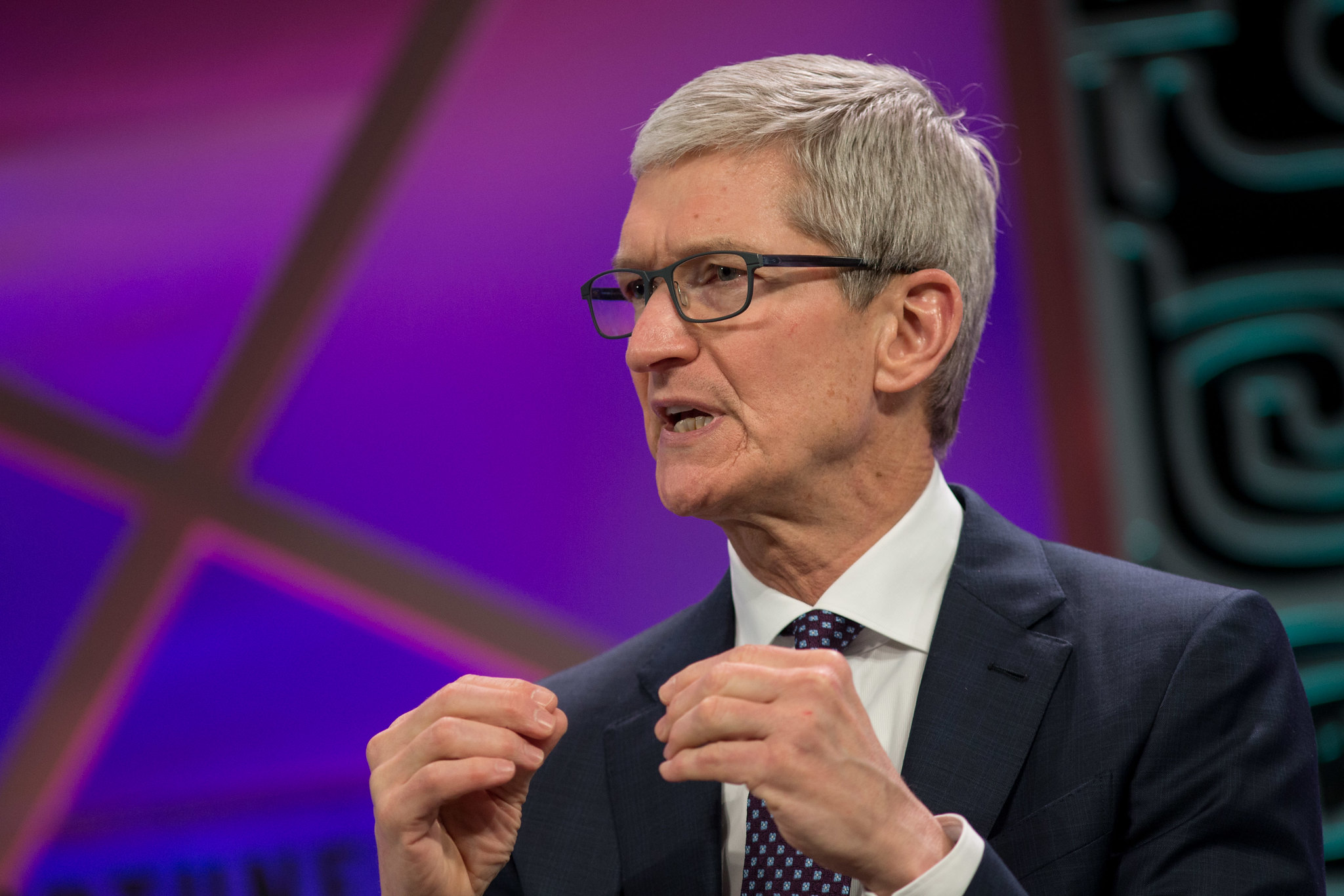 APPS
APPS
 APPS
APPS
 APPS
APPS
Apple Inc. executives were all smiles today after the company posted second-quarter financial results that beat expectations, partly as a result of its growing services revenue.
Nonetheless, the company saw its revenue and profit decline significantly from the same quarter a year ago. Earnings before certain costs such as stock compensation came to $2.46 per share, down 10%, on revenue of $58 billion, down 5%.
But that was better than Wall Street was expecting, with analysts having forecast earnings of just $2.36 per share on revenue of $57.37 billion. Apple executives also announced plans for a new $75 billion share buyback. Both events likely contributed to its stock rising more than 5% in after-hours trading.
All eyes were on Apple’s iPhone sales over the last quarter, and though the company no longer breaks out product unit sales by device, it said iPhone sales pulled in $31. 1 billion in revenue. That doesn’t sound bad at first glance, but the number represents a 17% drop from the year-ago period, the segment’s steepest-ever decline, according to Reuters. Apple’s overall revenue declined too.
One of the main reasons for the revenue decline is Apple’s poor performance in the key Chinese market, where revenue fell 21% compared to a year ago. The company has been grappling with a slowdown in iPhone sales in China in the past few months and recently saw its first ever year-over-year holiday season sales decline in that key market.
The slowdown in China stems from a couple of things, including the high cost of the iPhone and also increased competition from local firms such as Huawei Technologies Co Ltd. and Xiaomi Corp., which both sell cheaper handsets with similar features to Apple’s devices.
But the situation in China could have been much bleaker, Apple Chief Executive Officer Tim Cook (pictured) said in a conference call, noting that sales had recovered somewhat toward the end of the quarter due to price reductions and lower taxes on its products. Cook added that he was optimistic that the Chinese and U.S. governments would soon strike a trade deal and remove some of the economic uncertainty hovering over it.
“As we look at the iPhone results through Q2, the results were stronger on a year-on-year basis for the last few weeks of the quarter. We also saw a similar result in China,” Cook said on the call. “These, along with the continued success with wearables and so forth, give us some confidence that things are getting a bit better.”
Indeed, the wearables segment was one of Apple’s bright spots, beating analysts expectations with revenue of $5.13 billion for the quarter. Apple’s wearable products include its wireless headphones and its Apple Watch. Luca Maestri, Apple’s chief financial officer, said 75% of Apple Watch buyers in the quarter were new to the product.
Apple also found a silver lining in its emerging services business, which saw revenue top $11.5 billion. Four years ago, the services business made just $5 billion in revenue.
Services is a key business for Apple because both the company and investors see big promise in its growth potential. Just this quarter, for example, the company unveiled a new credit card offering, plus new television, gaming and news subscription services. Currently only the news service has been launched, but the others are expected to be ready later this year.
The services growth is encouraging, but eMarketer Principal Analyst Yoram Wurmser warned that the success of this business is still almost entirely dependent on Apple’s iPhones and other devices.
“The long-term growth in services and, to a less extent, other devices, depends on having as many users as possible in the Apple ecosystem, and that’s still primarily about the iPhone,” Wurmser said. “So, it’s worrisome that iPhone sales fell 17%. The long-term growth of the company still depends directly and indirectly on iPhone sales.”
Holger Mueller, principal analyst and vice president at Constellation Research Inc., said that he too was unconvinced by Apple’s growing services business.
“While Apple managed to beat guidance, it cannot detract from the fact it’s a ‘sick’ company when it comes to delivering handsets that can promp users to upgrade,” Mueller said. “With aging headsets and missed upgrade cycles, Apple’s services strategy will struggle to take off. So the pressure is still on for Apple to deliver a killer handset later in 2019. If Apple delivers a hit product things will look up. Otherwise, its future is bleak.”
That may be so, but Apple does at least have a solid base of existing users from which it can build its services business. It said it now boasts some 390 million subscribers to its own and third-party services available on its devices. The company has set a goal of 500 million subscribers by 2020.
Analyst Charles King of Pund-IT Inc. had kinder words for Apple, telling SiliconANGLE that its quarterly performance was pretty good considering the “fairly crappy circumstances” it was facing.
“At the same time sales of its signature iPhone cratered, Apple’s services look to be gaining additional momentum,” King said. “Plus, it received welcome boosts from wearable, home and accessory device sales, as well as good news from its long somnolent iPad products. Apple is beginning to look like something other than the ‘one trick pony’ that critics have long complained about.”
Apple’s guidance for the next quarter was also positive. The company said it’s expecting third-quarter revenue of between $52.5 billion and $54.5 billion, versus the $51.93 billion forecast by Wall Street.
THANK YOU